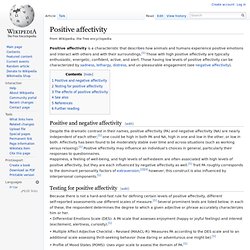

Make Dispensing Simple. Starter Moves for Tight Pelvic Floor, Weak Core.
Vaginismus: overcoming the condition. What are the Health Benefits of Gratitude? Change the way you work. Super Anti-Inflammatory Pain Reduction Smoothie. Do you suffer from chronic inflammation?

This recipe is excellent for fighting inflammation as well as increasing your energy levels. It is packed with anti-inflammatory ingredients which reduce pain and swelling, and nourish your cells with body-loving antioxidants. Inflammation occurs when our body's experience an injury, infection, irritants, stress or foreign objects entering our system, and our immune response and protective reactions to these factors. Our bodies inflame so that the injured area can begin healing. However, with chronic inflammation, our immune response is constantly revved up, and this can lead to accelerated aging and a variety of other diseases like psoriasis, cancer, heart disease, diabetes (type II), arthritis, autoimmune diseases, neurological disease and digestive disorders.
A majority of the inflammation in our body is caused by eating foods our body views as foreign substances (foods that our bodies cannot do much with, but try to protect itself from). Breathing Pattern Disorders - Leon Chaitow. In The Office Of The Future, You Will NEVER Sit Down. We all know that sitting at a desk all day can kill.

So what if we just banned chairs at work altogether? That's an idea that inspired a recent art installation in Holland called “The End of Sitting.” Rietveld Architecture-Art-Affordances (RAAAF), a self-described “experimental studio,” and visual artist Barbara Visser were the creative minds behind the show.
They collaborated to make an entire office where conventional sitting postures are impossible. Instead, the office design resembles a rocky landscape containing nooks and crannies that only afford workers a variety of standing, leaning and even lying-down postures. The experiment took things a step further by actually hosting real workers over several days. Here's what the art installation looks like: Recent research has linked too much time spent sitting to a greater risk of heart attack, stroke and Type 2 diabetes.
So is it practical to simply ban sitting, like “The End of Sitting” does? Self Efficacy: Why Believing In Yourself Is So Important. When facing a challenge, do you feel like you can rise up and accomplish your goal or do you give up in defeat?

Are you like the famous little train engine from the classic children's book ("I think I can, I think I can!) , or do you doubt your own abilities to rise up and overcome the difficulties that life throws your way? Self-efficacy, or your belief in your own abilities to deal with various situations, can play a role in not only how you feel about yourself, but whether or not you successfully achieve your goals in life. The concept of self-efficacy is central to psychologist Albert Bandura’s social cognitive theory, which emphasizes the role of observational learning, social experience, and reciprocal determinism in the development of personality. According to Bandura, a person’s attitudes, abilities, and cognitive skills comprise what is known as the self-system.
What Is Self-Efficacy? The Role of Self-Efficacy People with a strong sense of self-efficacy: TNE - google search. Positive affectivity. Positive affectivity is a characteristic that describes how animals and humans experience positive emotions and interact with others and with their surroundings.[1] Those with high positive affectivity are typically enthusiastic, energetic, confident, active, and alert.

Those having low levels of positive affectivity can be characterized by sadness, lethargy, distress, and un-pleasurable engagement (see negative affectivity). Positive and negative affectivity[edit] Despite the dramatic contrast in their names, positive affectivity (PA) and negative affectivity (NA) are nearly independent of each other;[1] one could be high in both PA and NA, high in one and low in the other, or low in both. Affectivity has been found to be moderately stable over time and across situations (such as working versus relaxing).[1] Positive affectivity may influence an individual's choices in general, particularly their responses to questionnaires. Testing for positive affectivity[edit] See also[edit] Surgency. RSA Shorts - The Power of Empathy.